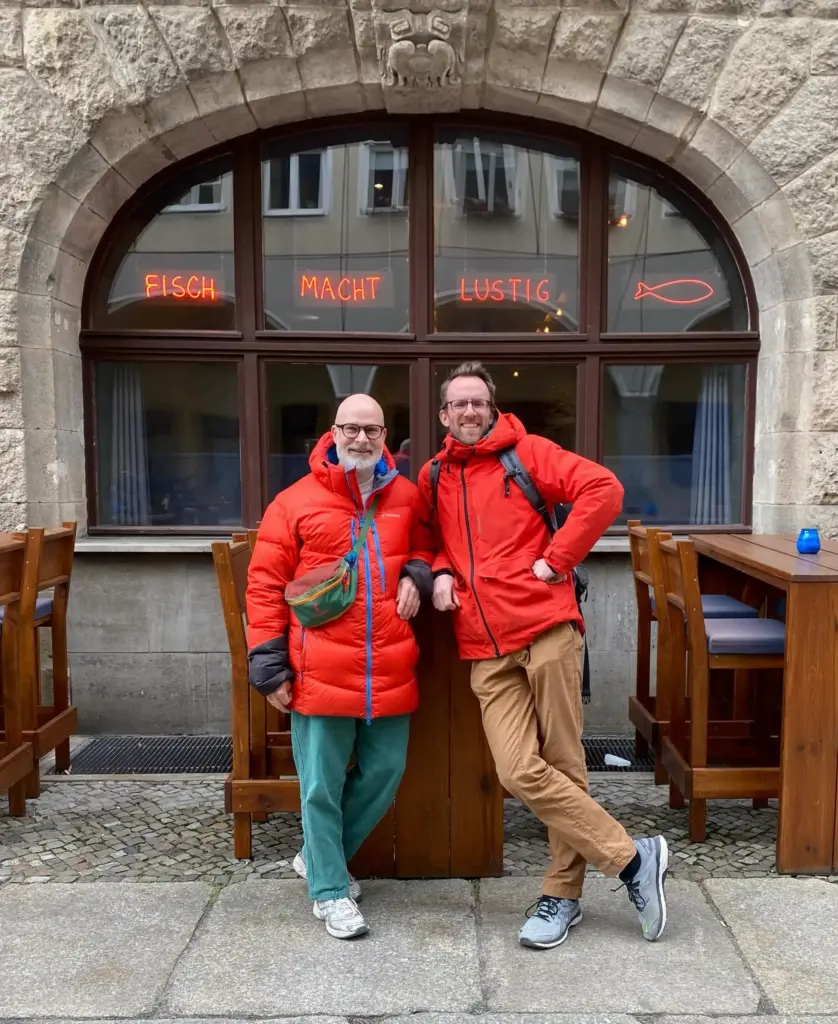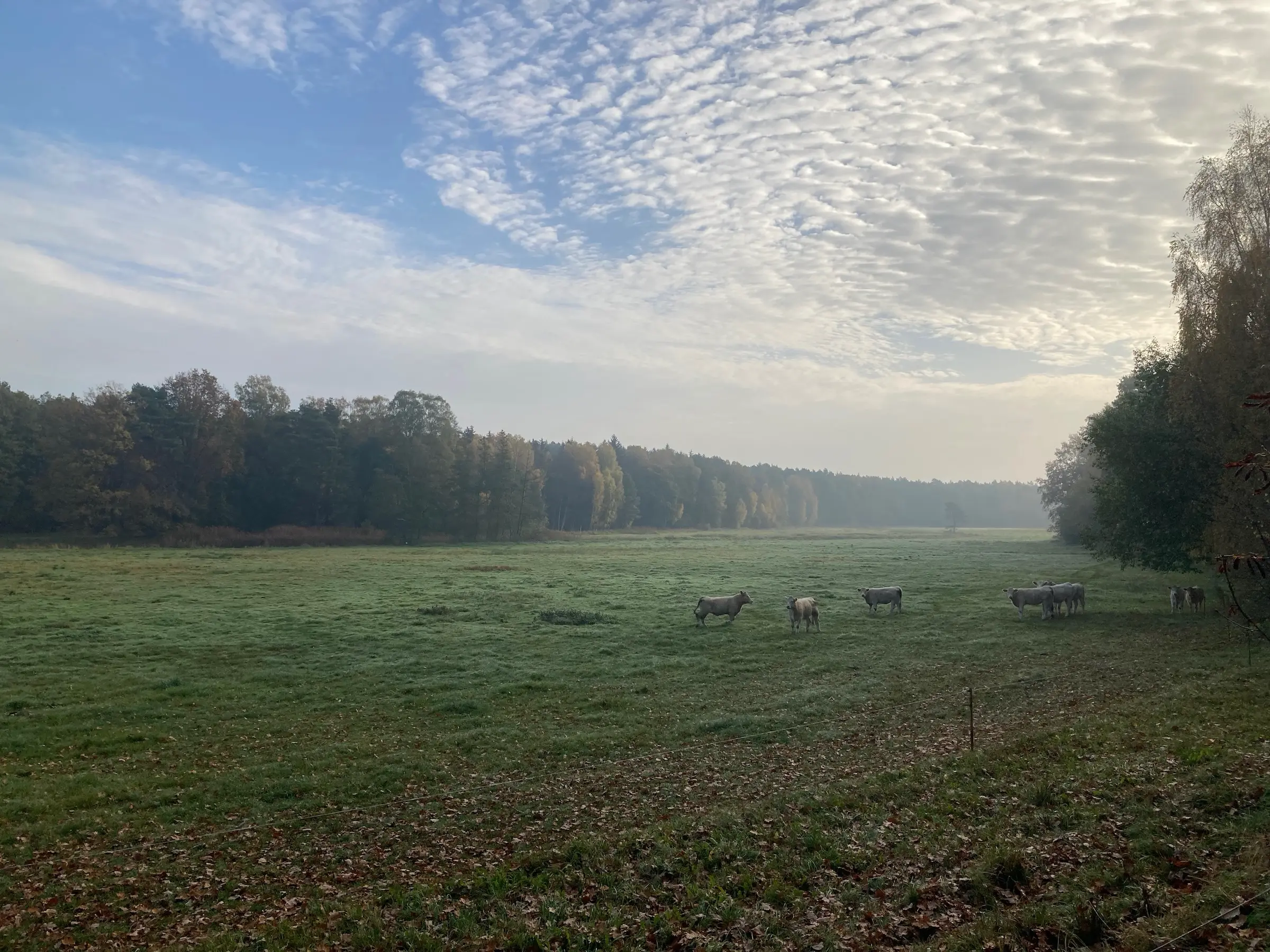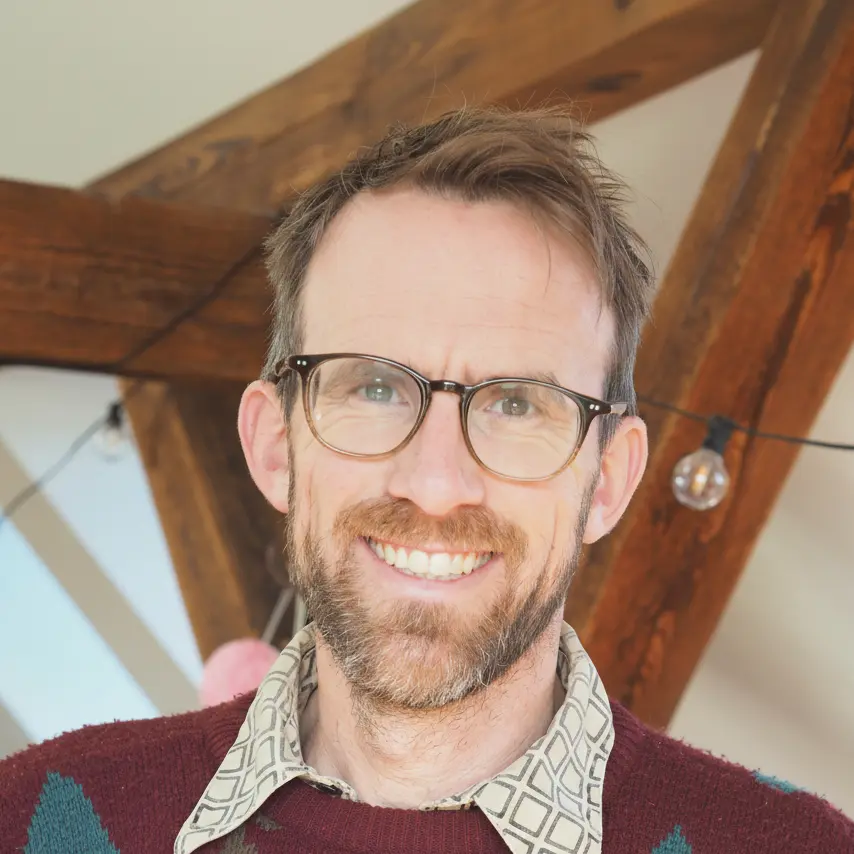For the past five weeks, I’ve been spending my Monday, Tuesday and Wednesday nights in Zoom with twenty other people, learning about product development in all its facets. I am participating in a three-months-long full-time Product Management Bootcamp from the Digitale Leute School. Taught by experts from the world of digital startups, these sessions cover the entire product lifecycle, from strategy and discovery to design, delivery, testing and continuous improvement.
While it’s possible to do this as a part-time, sessions-only course, I’m participating in the intensive full-time program. In this setup, participants directly put the knowledge and methods covered in the sessions to use in a product case of their own.
Now that I’m roughly halfway in with the course, I thought it would be good to write down some of my takeaways – if only to break the spell of my bootcamp-related blogging hiatus. I wrote my last blog post over two months ago, and to make matters worse, it makes a promise that I did not (yet) follow up on.
I am happy that I can at least share what I have focused on since then. So in no particular order, here are five things I’ve learned so far as a bootcamp participant:
1. Product management: knowing which steps to take when you don’t know the outcome
In last night’s session about working with developers, trainer Rainer Collet mentioned that many companies cannot pin down why they (try to) use agile methodologies: they “do” agile because they think that’s what expected of them. In many cases, they might not even need to work according to agile frameworks, because there is very little uncertainty about the thing they are working on.
You use agile when you are working with a high level of uncertainty. It means truly, sincerely embracing the fact that you don’t know the outcome yet and attacking this uncertainty head-on with user research and tests and prototypes to falsify assumptions, deciding what to build first and learning from it.
This mindset is rare in organizations, and I think my closest encounter with this kind of openness to experimentation happened in my sessions with the Tandem team, in preparation of the development of the new tandemforculture.org website.
2. Embracing your inner generalist
One day before I started the bootcamp, I interviewed for a “CMS Specialist” role at a multinational technology company. Having worked extensively with content management systems throughout my entire career, I reckoned that I would have enough experience to consider myself a specialist.
Still, after introductions and a more in-depth discussion of the goals of the team and the responsibilities for the role, the hiring manager asked me if there is one particular area of expertise the team would be able to rely on me for. I struggled to answer this question for obvious reasons: within the area of web development, I have in recent years shifted my focus from development, to team leadership, internal project management and eventually even marketing. This made it hard for the hiring team to pinpoint which specialist input I could provide as part of a team of experts.
During one of our first courses, we established that many of the participants in the bootcamp have a similar outlook on work and consider themselves generalists. This fits: product management has touch points with many different disciplines, from business and strategy via design and development to customer success and marketing. Having had wide range of interests has meant that I have always been keen to try out new things – not out of boredom with the thing that I am currently doing, but out of curiosity for the thing I have not yet tried. This made answering the question “what do you want to do” quite hard, until now.
I have always been interested in solving real user problems, but I had difficulty deciding which role fits my skillset best. As a generalist, I now know that I can thrive in product management.
3. Moving away from intuition and relying on hands-on experience with methods
In previous jobs, when faced with uncertain outcomes, I usually had a rough idea of what a good approach would look like. I have always enjoyed research – arguably even a little bit too much – and am always eager to learn from the experiences of others through blog posts and podcasts. I prefer experimentation, just doing something to see what happens.
Of course, I was often not behind the steering wheel. As an individual contributor, it is tempting to challenge those people in leadership positions who are making the call on how to proceed to meet a certain goal. In the past, when evaluating the merits of initiatives, I have often relied on intuition: does the current approach feel like it has a chance of succeeding? Do the strategy and approach meet my expectations, based on my previous experiences, or based on what I have seen similar companies do?
Still, even when given the chance to influence decisions, I would be susceptible to groupthink, due to my awareness and sensitivity to the opinions of others. Intuition is not enough to make a compelling argument for a hard decision that goes against the consensus but has the benefit of allowing you to learn quickly: for that, you need hands-on experience with methods that allow you to leverage critical thinking to create a positive outcome.
Thanks to this bootcamp and the hands-on experience offered with techniques like exploratory interviews, business model canvases and user story mapping, I now have a firmer grasp on the methodologies you can use to tackle uncertainty and challenge assumptions, identify opportunities and test ideas.
4. Learning happens when you are doing the actual work.
Ideally, every role in a product or project team is vital for the success of the product. The responsibility for this success is shared between the members of the team, and the most successful teams are the ones in which each individual contributor takes this Very Seriously. In product teams, however, there is a special kind of responsibility on the shoulders of the product manager, because it is their job to ensure that the individual efforts are directed at the problems that, when solved, provide the most value to the user. Good PMs always ask themselves: is the team solving the right problem in the right way?
This makes product management a big job, precisely because it requires methodological confidence, strong domain knowledge and thoughtful leadership to navigate through uncertainty. It is a role where the work is not handed to you in bite-sized chunks: it is a mountain that blocks your view of the ocean (success!), and you can only chip away at the problem, carving out a path by doing the actual work. Ideate. Test and validate. Execute. Repeat. And each time, you learn a little bit more about the problems you need to solve first and which tools are best suited for the job.
Working on my own product case, I have found that you achieve nothing when staying inside of your comfort zone. While it is easy to think of the possibilities in abstract terms, about what might be, there is no progress to be made there, no learning and no reward. The product can only ever become a reality when you sit down and get into the nitty-gritty. Interview users. Start drawing out what it looks like. Make choices about the problems you will not solve.
5. The value of having classmates
Last, but certainly not least: it’s fun to learn with others. I am in a cohort with eight amazing people from all over Germany. While there are others in the course who have a background in development, like myself, the participants in my cohort mostly come from a bunch of different disciplines: we have early-career professionals, a seasoned illustrator/designer who has worked across the world, publishing and event professionals, marketing and e-commerce specialists.
After having spent such a long time in the same company, I love that the bootcamp enables me to spend time with such a diverse group and learn from my class mates’ approach to things and their perspectives and experiences. In our remote setting, however, it is easy to forget to take advantage of this unique opportunity to ask for feedback from others, and putter about in your own bubble instead.
Still, it being such an intensive course, it’s really great to be able to join a daily meeting and see people you’ve come to know well and reflect on the session of the previous night or share your doubts and ideas.

What’s next?
As we venture into modules that I am more familiar with due to my previous experiences working on websites, the focus for me will be to turn my product idea into a tangible case study.
I am working on a concept for a platform that enables inhabitants of rural towns to collaboratively write the village history and the stories told by the buildings that have housed multiple generations, both people whose families have always been there and those who have just arrived. The rich histories of these towns are only known by a handful of people, often older generations. In the case of our village, this meant that they have witnessed the impact of political change during and after the Second World War, the impact of GDR policy, the decline of industry and what seems to be the loss of a sense of community after the fall of the German Wall. It is these stories that deserve to be shared, and I aim to provide the tools to make that as easy as possible.
In the next 6 weeks, I will hopefully be able to get a much better idea of what the platform should look like, finding out how to provide real value to the people in my own village and to the many other inhabitants of rural towns in Germany. It’s more than a passion project for me as a Dutch cultural historian who has found himself living in a rural town in Brandenburg, it is a real test of my skills as a product manager.



Leave a Reply